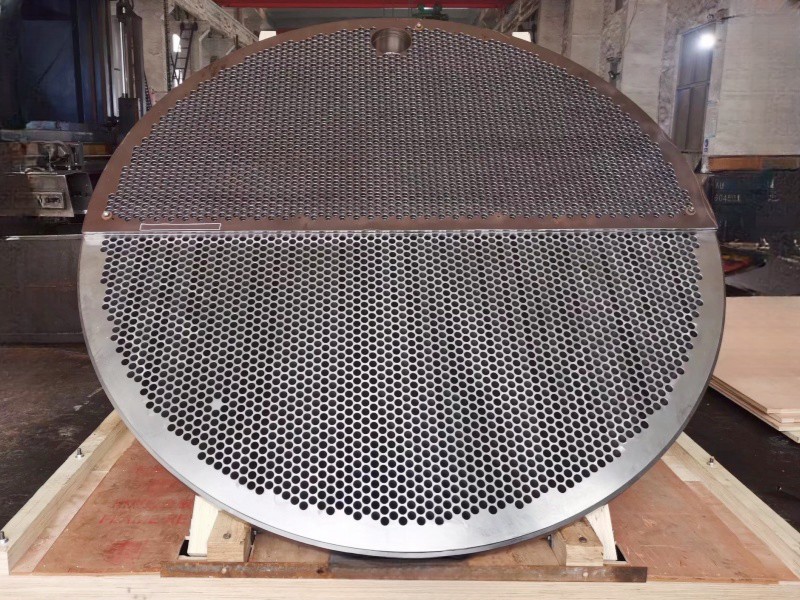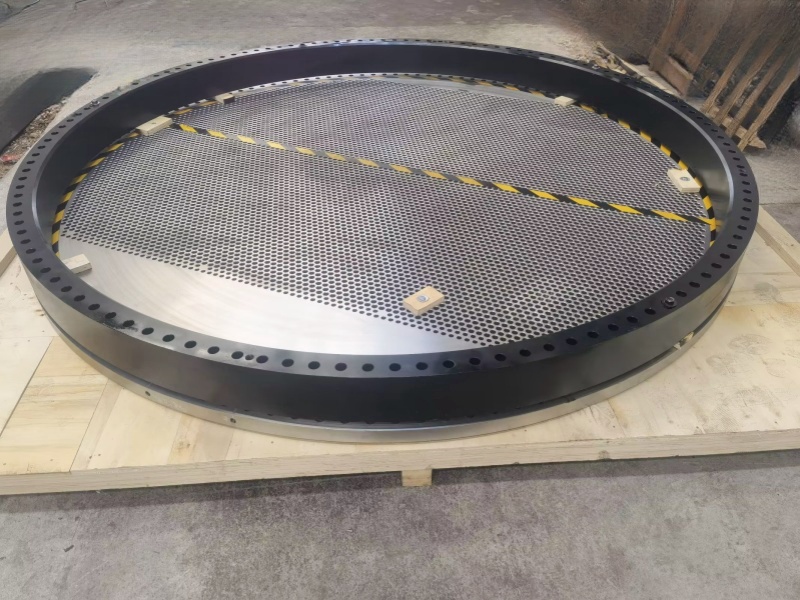
What Are You Looking For?
What is a forged tube sheet?
Forging is a process of manufacturing components by plastic deformation of metal. During the forging process, the metal is pressed to the desired shape. A forged tubesheet is commonly made from a round disc forging with holes drilled to accept the tubes or pipes in an accurate location and pattern relative to one another. The advantages of forging tube sheets are high density, high strength, and good toughness. However, due to the high temperature and specialized equipment required for forging, the cost is relatively high.
A forged tube sheet is a critical component in shell-and-tube heat exchangers. It serves as a support for the heat exchanger tubes and provides a sealed barrier at the ends of the tubes to prevent leakage between the tube-side and shell-side fluids, ensure effective heat transfer or to support filter elements. In shell and tube heat exchangers, two plates support the tubes, one on each end. They are in contact with both fluids on the shell side and the tube side, so they must be corrosion resistant and sealed tightly. Many heat exchanger design codes and standards require forged tubesheets.

Forged Tube Sheet Production Standards:
The production standards for forged tube sheets can vary depending on the specific industry and application. However, some common standards that may be followed include:
1.ASME (American Society of Mechanical Engineers) Standards: ASME Boiler and Pressure Vessel Code (BPVC) provides guidelines and standards for the design, fabrication, and inspection of pressure vessels, including heat exchangers. ASME standards ensure that the equipment meets safety and performance requirements.
2. ASTM (American Society for Testing and Materials) Standards: ASTM specifications provide guidelines for the materials used in the fabrication of tube sheets. Different grades of materials are specified based on factors such as temperature, pressure, and corrosion resistance.
Material of Forged Tube Sheets:
The choice of material for forged tube sheets depends on the specific requirements of the application. Common the material include: carbon steel tube sheets, stainless steel tube sheets, alloy steel tube sheets. A tubesheet may be covered in a cladding material which serves as a corrosion barrier and insulator which is weld overlay tube sheets. (Know more about welding overlay tube sheet)

Forgings for manufacturing tube sheets need to meet the following performance requirements:
1. High strength: able to withstand high pressure and impact loads, ensuring the stability and safe operation of the tube sheet.
2. Good corrosion resistance: It can resist the corrosion of the medium and extend the service life of the tubesheet.
3. Good sealing: Ensure the normal operation of the tube plate and prevent medium leakage.
4. Good processability: Easy to process into complex shapes to meet the design requirements of tubesheets.

Forged tube sheets find applications in various industries, including:
1. Petrochemical Industry: For heat exchangers in refineries and chemical processing plants.
2. Power Generation: In boilers and steam generators.
3. Oil and Gas Industry: For heat exchangers in oil refineries and offshore platforms.
4. Chemical Processing: In chemical reactors and processing equipment.
Forged tube sheets are crucial components in heat exchangers, manufactured through a forging process to achieve specific mechanical properties. They adhere to industry standards and are chosen for their strength, durability, and resistance to corrosion in various industrial applications. Wuxi changrun specialized in forged tube sheet manufacture.
